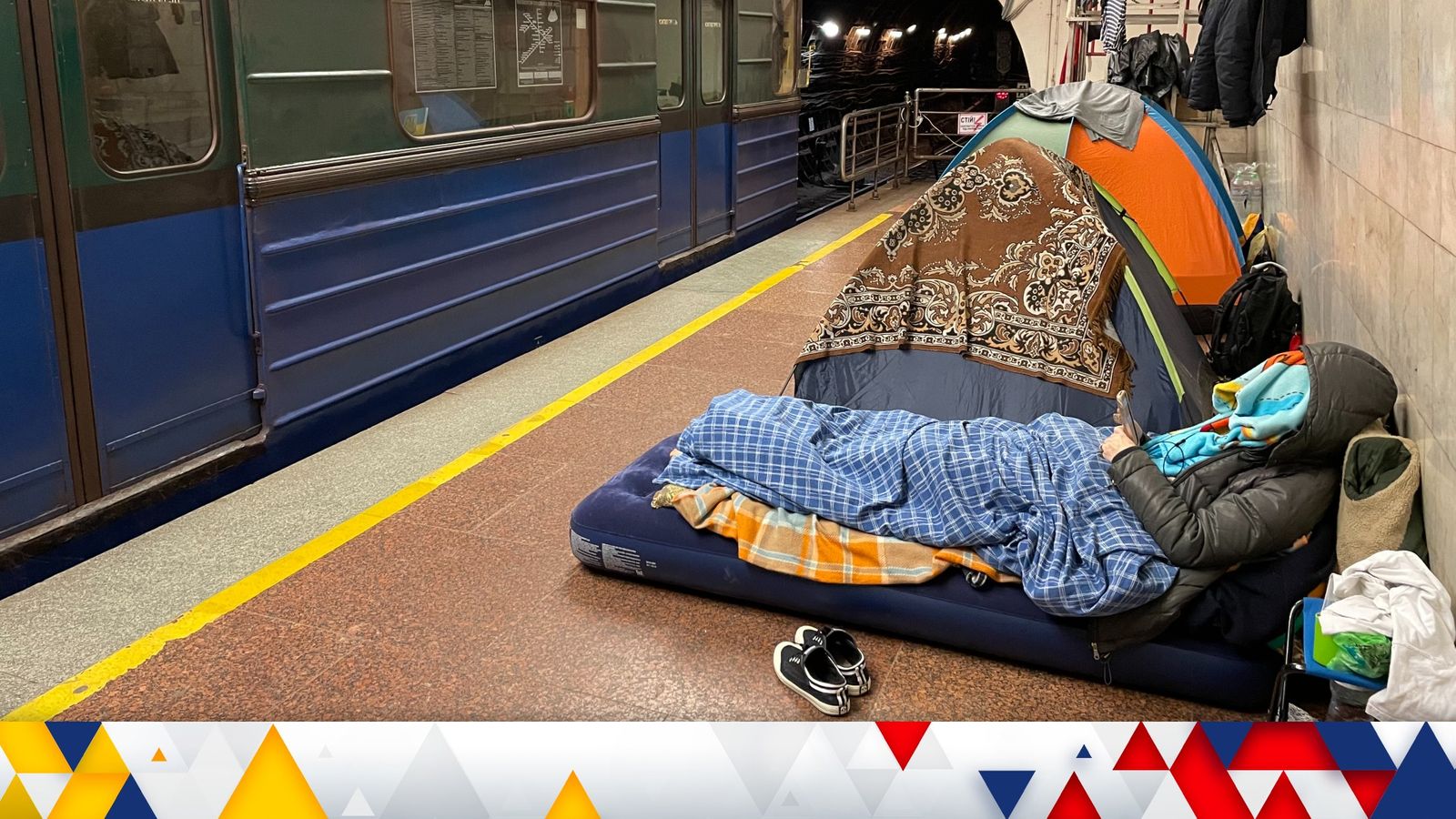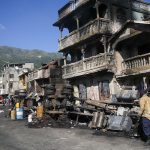The streets and thoroughfares of Kharkiv have been abandoned by the majority of those who resided in Ukraine’s second-largest city.
Under near-constant shellfire, at least half a million have fled the community with their prized possessions stashed in a bag. Thousands of cars have been discarded in the streets that surround the central station.
Those who remain must hide in the shadows, and some now live underground.
More than a dozen metro stations have been turned into shelters, with battered looking train carriages redeployed as makeshift homes.
Today’s key developments:
• Ukraine has refused to give up the besieged city of Mariupol despite Russia’s demands to surrender
• Another curfew lasting 40 hours from Monday night has been announced in the capital Kyiv
• Kremlin says more progress needed in peace talks before Putin and Zelenskyy can meet face-to-face
• Ukraine’s nuclear regulatory agency says the radiation monitors around the Chernobyl have stopped working
• Russia has claimed it targeted a shopping centre in Kyiv because it was being used to store rockets
Ukraine war live updates: Russia-US relations ‘on brink of collapse‘
Ukraine war: Stark difference in Eastern Europe’s welcome to Ukrainian and Syrian refugees is troubling
FA ‘working with the government’ to let Chelsea fans attend cup semi-final despite sanctions
Ukraine war: Russia claims it attacked Kyiv shopping centre because it was being used to store rockets
We met a man called Greg Korup working on his laptop in a train carriage on platform two.
He and his family have spent the past three weeks in the station, and he told us the arrangement had its advantages.
“I am a business analyst,” he said. “My clients are in the United States and Canada. I can work anywhere I want with a laptop.”
“Even in a metro carriage in Kharkiv?” I asked.
“Yep, it’s my office,” he chuckled.
His partner Iryna told me their flat is located on the top floor of their building. It feels far too dangerous to spend time at home as the Russians fire shells and rockets into the city.
“How do you feel about the fact that you have to live down here?” I asked.
“At first, it was really awful, because this situation isn’t normal,” she said.
“After a week, we felt much better,” added Greg. “When we heard something blow up, we were running down (to the metro station) but now it’s like, ‘what was that? Oh, it is just shooting.’ It is not dangerous down here.”
On the adjoining platform, we met a new mother called Natalya Chernobay, who has had a torrid time over the past few weeks.
She went into labour two days after the invasion began, with the fighting “blasting over our heads”.
“I was taken to the basement (of the maternity hospital), I was lying down at first, and when I started giving birth they had to take me upstairs,” she said. “This is where I gave birth. There was a lot of shooting outside.”
She spent the next three days down in the basement before a woman from the hospital arranged to bring her – and her newborn son, Bohdan – to the station. It is not safe to live at home.
More from Kharkiv:
• Chaotic shelling in Kharkiv as Russia accused of refusing to repatriate dead soldiers
• Man escapes rubble-strewn tomb after being stuck under debris for hours in Kharkiv missile attack
But the metro station is anything but ideal.
“It is very difficult to look after the baby here,” she said. “My mum and I need the station master’s help to get him washed. It is very inconvenient. That’s why I want it to all end soon.”
Now, they live in the final car on platform two, with a cot and warm clothing provided by volunteers.
Yet, it is the last place she wants to be.
Please use Chrome browser for a more accessible video player
“It is impossible to breathe in here,” she said. “There is a lot of dust. The baby keeps sneezing constantly. Everyone is coughing. That’s why we want to go home.
“Just before the war on the 23 February, my husband and I assembled the cot, we got everything prepared for the baby. And the next morning I was woken up by shelling noises.”
Her husband has gone to fight with the Ukrainian army.
“I think even if I manage to get out of here, I won’t be able to walk the streets without fear.
“I’ll be looking behind my back all the time, and I’ll even be frightened by fireworks. Honestly, it’s very scary.”
In Kharkiv, the war is fought very close to home, and those who remain must find a means to survive.






















